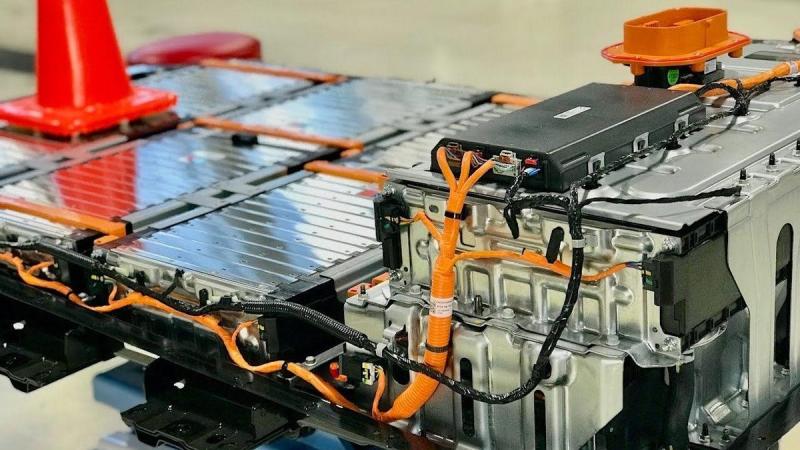California Doesn't Know What To Do With Old EV Batteries
By: Lawrence Hodge (Jalopnik)


The solution for old EV batteries is obvious: spend more money. Politicians can fix any problem by simply spending other people's money.
Repurposing old EV batteries for grid electricity storage depends upon ensuring electricity is delivered over a grid. Utilities will need the ability to block rooftop solar allowing people to remove themselves from the grid. The idea of repurposing EV batteries also allows utilities to pass the cost of ultimate disposal on to electric customers. It's a splendid way to kick the can so that consumers will bear the entire burden for choices made by politicians.

California Governor Gavin Newsom has big EV plans for the state. California is the largest EV market in the country, and on Jan. 26, the governor announced a $10 billion proposal to transition the state to clean energy and get people driving EVs. But as Southern California news outlet the Daily Bulletin reports, when these EVs inevitably get old, no one seems to know how to handle or dispose of the old batteries.
We here at Jalopnik have touched on this looming problem before. Depending on where and who you talk to, there are different solutions. The UK, for instance, wants to recycle batteries using direct recycling, which would use ultrasonic waves to break down the cathode powder without damaging the battery itself so it can be reused. Then VW announced a recycling plan at the beginning of 2021 with a dedicated recycling facility.
California seems to be almost in a rush to transition to EVs with all the transition plans but no long-term thinking. The co-founder of a local battery diagnostic company called ReJoule thinks one of the reasons for this lack of planning is a lack of understanding of how batteries work. From the Bulletin:
There still aren't enough people who understand (retired) batteries well enough to responsibly handle them," said Zora Chung, co-founder of Signal Hill's ReJoule Inc. "Ultimately, we need more education, and to have a more efficient marketplace to re-deploy these batteries into a second-life application.
ReJoule has a plan to repurpose old batteries for solar storage. Meanwhile, the state hasn't mentioned anything regarding battery recycling since late 2018. Assembly Bill 2832 was signed calling for an advisory group to look into recommendations for battery recycling. A report was done up last December with public comments being taken until mid-Febuary 2022.
California's own strict environmental legislation may be another hurdle to battery recycling, as batteries have always been deemed hazardous waste. A bigger hurdle is not knowing what happens to out-of-warranty batteries. The advisory group's report found that there is no good way to track what happens to these batteries after they come out of old vehicles, suggesting that money be used as an incentive to track the batteries:
One of the concerns mentioned by participants was that once vehicles and/or batteries are out of warranty, it is difficult to track them or control what happens. Given the market-driven nature of the vehicle afterlife industry, returning EOL batteries to a domestic reuse or recycling system essentially relies on there being some financial incentive or benefit for doing so to whoever is handling the battery.





After forcing the market to adopt electric vehicles, don't be surprised if these same politicians begin requiring manufacturers to fix the problem. Politicians create all sorts of problems through short sighted mandates and then claim to be solving the problems they have created by shifting the burden onto those who were forced to follow the mandate.
Every manufacturer that produces EVs has a program to recycle their defective or old batteries.
Toyota even accepts batteries from non Toyota vehicles.
The programs are keeping pace with manufacturing and retirement.
Really?
Guess people are worrying over nothing then; and the California governor is wasting his time over a problem that doesn't exist.
Wow, a 2019 article from CNN?
See it here all the time...
The SCIENCE article from May of 21 is fair and balanced and validates the Governors concerns.
California already has laws concerning the recycling of the typical wet auto battery.
Although EV Lithium batteries are completely different, it only make sense for the state of California
to be interested in the welfare of it's citizens and state resources.
Thanks again...
We see how it's worked with Climate Change. Maybe if we throw money at Covid and EV Batteries they will mysteriously go away.
A good place to look is to see what and where they send the current batteries for other types of vehicles .
I can foresee some states enacting legislation they will not accept such waste for disposal .
50% end up recycled into new batteries, but the energy output to reclaim reusable metals
is 6 times what it is to produce a new battery from fresh metals and plastics.
Most auto parts stores will take any cores for disposal/recycling.
We make and sell 99 million wet auto batteries a year.
I count 27 plus PR already have those laws. It's just a matter of time.
Oh i know that , my state requires recycling of batteries for vehicles , the point and issue i was bringing up because it would seem almost a simple solution was , where will they ship them out to ?
right now i think most batteries for recycling go out of the country , was told usually to mexico , but i could see by the map you provided , these things being shipped to states that dont have the regulations .
california could feasably just ship them to the 3 states that border it where the ecological controls are not in place or as stringent .
brings to mind , NIMBY.
Toyota sends theirs to Thailand.
The Government had to mandate recycling Lead Acid batteries because old landfills are filled with millions of tons of Lead from discarded batteries. I remember when I was a kid we used to find them in the woods anywhere people dumped yard waste and everybody seemed to have a few behind their garage. I've seen them in rivers and burned in bonfires. It may seem like a pain when the store charges you a core charge on your new battery but think of the alternative, every car and truck has about 20 pounds of lead in it's battery. The Government had to force it to be recycled because lead is cheap because it's kind of a byproduct, we don't mine for it exclusively anymore because we get all we can use from zinc, silver, and copper mining.